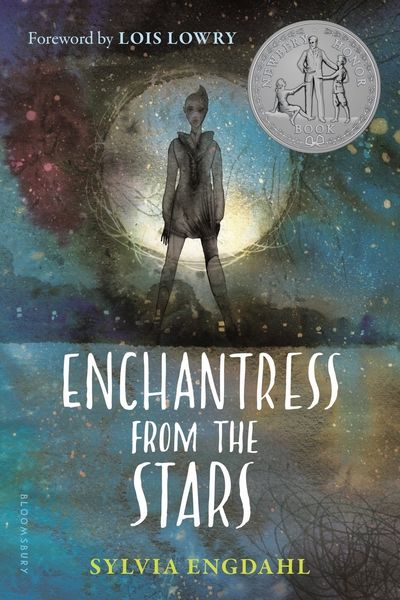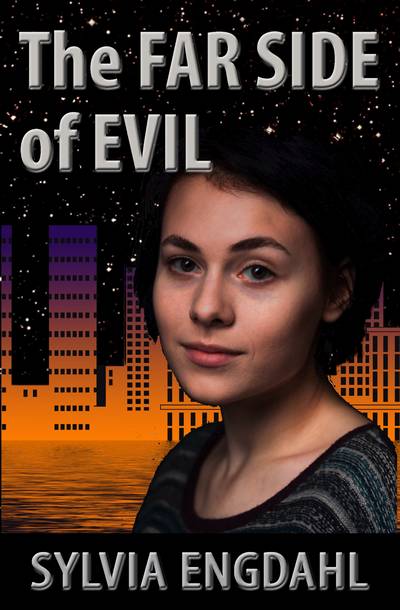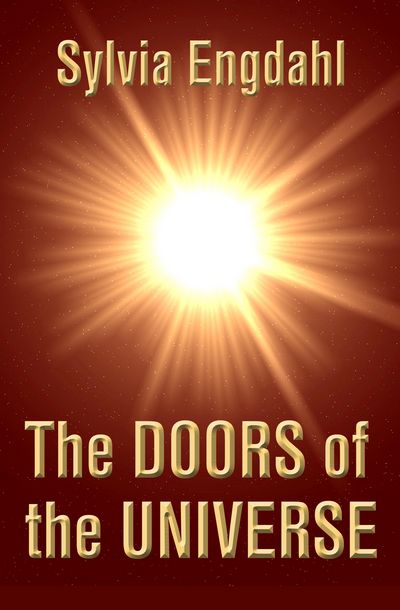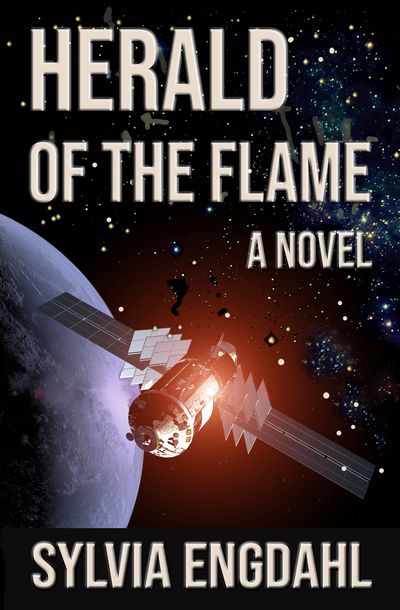
Are My Novels Set in a Distinct Fictional Universe?
by Sylvia Engdahl
I was dismayed recently when I discovered that in ISFDB, Wikipedia and elsewhere, five of my YA novels were being called "The Anthropological Service Universe series." Apart from the fact that this had caused some confusion in regard to the availability of rights to specific titles, by no possible logic could these books be considered a series. The Children of the Star trilogy is completely separate from the two Elana books; it is about different characters on a different world having no connection to any other. Yes, the Anthropological Service appears in its concluding volume (though not its first two). But it also appears in two of my four Flame novels, an entirely independent series for adults. Are all of my novels to be viewed as one series merely because an aspect of my view of the universe is explicitly dealt with in some? Science fiction and fantasy series are generally characterized by being set in distinct fictional universes with unique histories and locales that set them apart. This single factor in my books is surely not enough to establish such a universe.
A fictional universe is normally a setting distinguished from others by features that are not merely unlike the real world, but sufficiently unlike the premises of other fiction--whether the author's own or that of other writers--to be inconsistent with it. Moreover, the author or publisher usually has an exclusive right to use this setting. The Star Trek universe, the Star Wars universe, and the Battlestar Galactica universe have irreconcilable differences, and enough details about them are known for stories set in them to be immediately recognized as taking place in that universe and no other. Readers return to them because of familiarity with those details. Yet though there are FTL starships in all of them, no one would say that this groups them into a single series simply because there is other science fiction in which FTL starships don't exist.

To be sure, FTL starships appear in so many science fiction universes that they are obviously not a distinguishing characteristic. Similarly, the mere inclusion of hostile aliens in an SF story could hardly be called defining, although aliens with a specific form and history would be. Advanced aliens with the attitude toward younger species exemplified by my Anthropological Service are not so common. Why, then, does their presence not constitute a distinct universe? Because the concept underlying them is too broad for it to do so. They are a feature not merely of my stories but of my actual beliefs about advanced aliens.
Just as space travel is a fundamental premise of my outlook toward the real universe, the policies of advanced aliens as I have described them are fundamental. In a story I have to depict such aliens in a specific way, just as I have to depict future humans--the details in both cases are imaginary. To make these imaginary details about the aliens different in different books would look like repetition of the idea out of laziness rather than conviction. But the need to describe them does not mean that the universe in which they live is a separate one, any more than the fact that in most of my books humans have latent psi powers does. Neither of these premises sets them apart from whatever else, fiction or nonfiction, that I or others with similar views might write about the future. I certainly don't have any exclusive claim to these ideas.

I do not create fictional universes. I write about only one universe--ours, as I envision it is or will someday become. The details are of course fictional, but there are no inconsistencies between my novels, though my three separate series are about different imaginary worlds. The Flame novels deal with future Earth and its colonies; this does not conflict with the premise of the Children of the Star trilogy that the world of the characters' ancestors had been destroyed by a nova (a point missed by readers who overlooked the clear indications that those ancestors didn't come from Earth's solar system). Nor does it conflict with the deliberate ambiguity of Elana's origin in Enchantress from the Stars. She could be either a visitor to Earth in medieval times or a descendent of Terrans in the distant future, or for that matter, someone with no connection to Earth at all. The universe encompasses vast distances in space and time, and I don't believe the Service is confined to any particular region of it.
My novel Journey Between Worlds is a special case; it is not now inconsistent with anything else I have written, but because it is a relatively near-term story it will become inconsistent with reality as soon as a major colony on Mars is established (not a mere base, as the book gives no details about how its Martian colony was founded). Does the Anthropological Service exist in the same universe as Journey Between Worlds? Certainly--there is nothing said anywhere to suggest that it doesn't. In my opinion it exists in our own universe, which is why reports of contact with UFOs aren't true and why SETI will produce no results. It is undoubtedly very different from the way I've portrayed it and far beyond our present ability to comprehend, but some conceptually equivalent policy on part of mature species in relation to younger ones is a necessity if the younger ones are presumed to evolve.

There is just one case in my books where for literary reasons I departed from a consistent expression of my beliefs about the universe. The invaders in Enchantress from the Stars are an anachronism. They are deliberately patterned after modern myths about space invaders, just as the people of Andrecia are patterned after traditional myths about dragon-slayers; one is no less mythological than the other. In reality, no species advanced enough to have developed interstellar travel would invade an inhabited world. Even now, no one in a position to form space policy would do such a thing, and hundreds of years from now the very idea would be no more tenable than that of practicing human sacrifice. Humans, of whatever species, progress as they evolve. People of the 22nd century will not behave like those of the 19th. Normally I dislike science fiction that ignores this fact, but Enchantress, being mythological in form, does not pretend to be realistic.
This alone sets it apart from my other books in which the Anthropological Service appears and precludes viewing it as part of a series, (Except in connection with The Far Side of Evil, which is not mythological, is for a different audience, and should never have had the same heroine--using her in it was a mistake I have always regretted. The two can be read in either order by teens and I try to promote them as stand-alone books.) In any case, the rest of them are no more a single series than any other collection of diverse science novels that's not so labeled by its author.
Copyright 2019 by Sylvia Engdahl
All rights reserved.